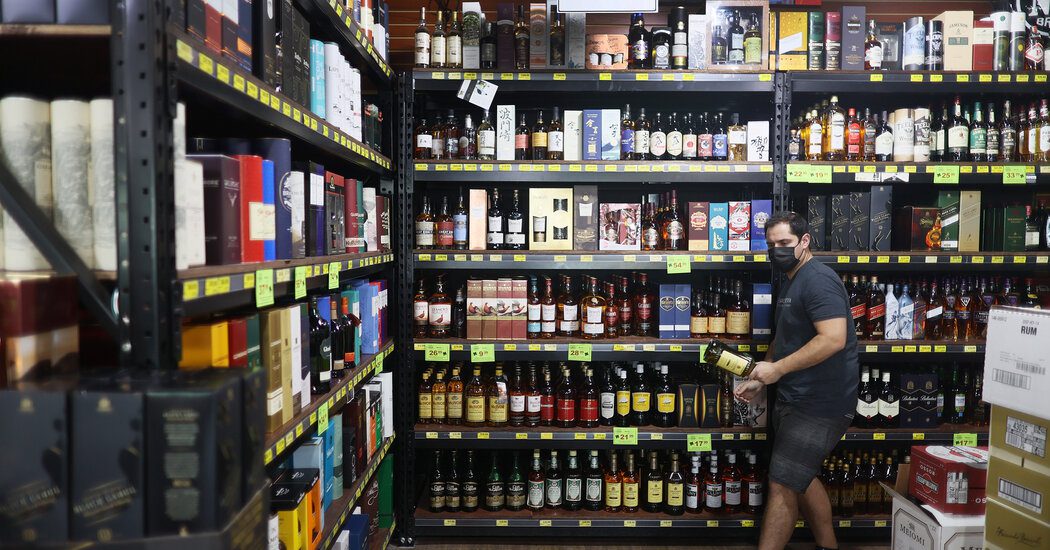

On a recent drizzly evening in Brussels, liquor industry lobbyists convened at an exclusive private club, indulging in cocktails with playful names such as “Toasts Not Tariffs.” Their gathering centered around concerns about potential threats looming over their sector—a familiar struggle.
Just seven years ago, the spirits market became a significant casualty in a global trade dispute ignited by former President Trump, who imposed tariffs on allies. This prompted the European Union to retaliate with tariffs targeting American whiskey, including a hefty 25 percent duty designed to impact Senator Mitch McConnell from Kentucky, who was the majority leader at the time. This exchange led to a series of tit-for-tat tariffs that affected a broad range of spirits, from rum to cognac, across the Atlantic.
While these tariffs were put on hold during the Biden administration, the return of Trump to the political scene signals renewed turmoil for the alcohol sector, as he attempts to reshape international trade policies once more.
The European Union initially suspended these tariffs in 2021 and extended this reprieve into 2023; however, this temporary relief will come to an end on March 31. Following that date, escalated tariffs of 50 percent will automatically be imposed on American whiskey, alongside new charges impacting various other products, including motorcycles.
Yet, it’s the spirits industry that has been most vocal regarding the dire implications these levies could have on their business. Leaders within the industry, including craft distillers, warn that such taxes would drastically undermine their export opportunities, particularly in expanding markets like Germany and France. Additionally, they express concerns about potential retaliatory measures that could affect various alcoholic beverages.
In response to these challenges, bars have begun stockpiling extra inventory to prepare for a possible trade dispute, while distilleries are delaying their international expansion initiatives. Moreover, industry representatives are actively engaging with policymakers in key locations such as Brussels, Washington, and Rome. There, they are working with leaders like Italy’s Prime Minister Giorgia Meloni, who has become a vital link between Trump and Europe, in a bid to persuade decision-makers to prevent the impending consequences of new tariffs.








